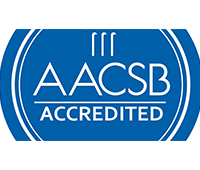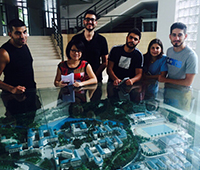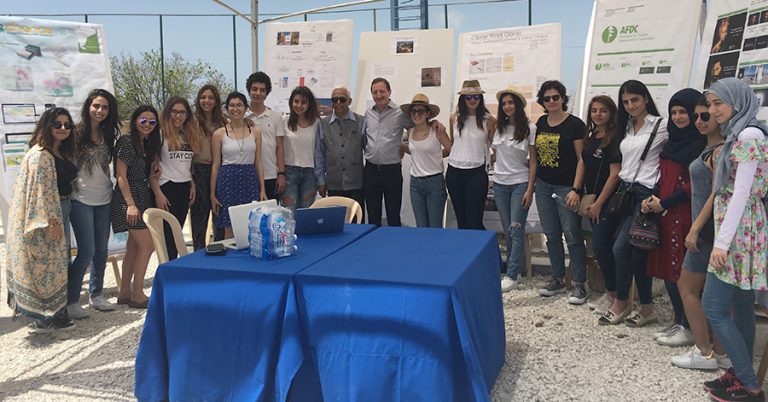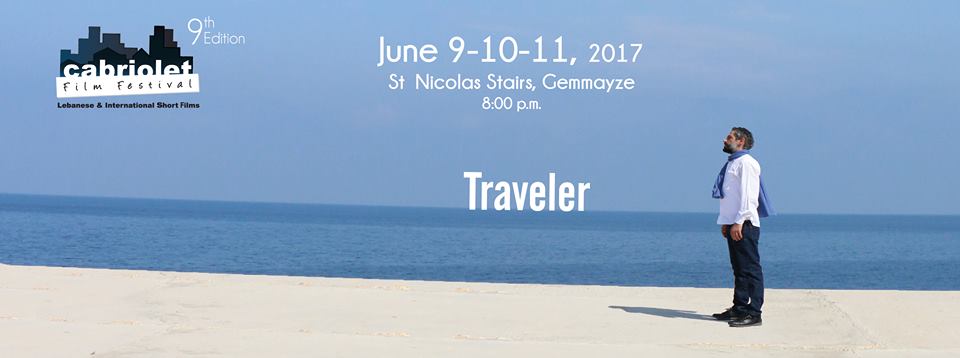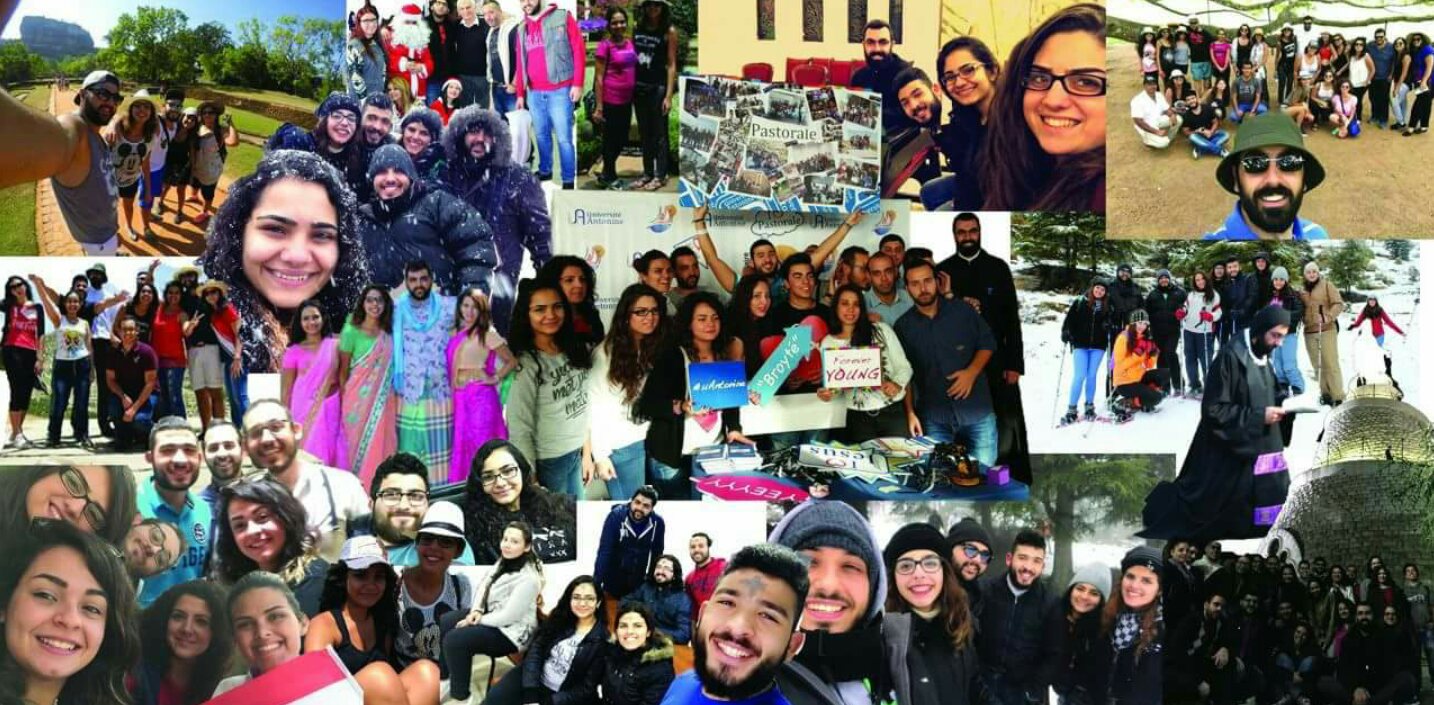Passionate, empathic, driven are just a few words to describe one of the most exceptional women you will meet at Université Antonine. So what is Dr. Elizabeth Sfeir’s story?
She was born in Toronto, raised in Australia and has been living in Lebanon for the past 17 years. At the age of 18 years old, she graduated with a bachelor degree in business and marketing at the Griffith University in Australia. There, she was the president of the students’ association which she considers to be her first major contact with responsibility: “I learned a lot of leadership skills because we had to manage students’ services money, about 2 million $. We launched a student building for the 6,000 students on campus. I was a student fighting for student’s rightsâ€.
Anyone who has had Dr. Sfeir as a teacher or as a colleague knows that students have always been her priority: “After I graduated and became part of my alumni, I worked in the admissions of my university and became soon after a course advisor for students. This is where I started working with students closely, and realised I wanted to do greater things for themâ€.
In 2000, she came to Lebanon with her husband, and volunteered in teaching English communication studies in the Lebanese military. “I fell into teaching accidently, it wasn’t something that I plannedâ€. Six years later she came to Université Antonine and worked as an administrative assistant before launching the faculty of Business administration with the founding Dean and previous minister Damienos Kattar and then-director Fouad Choueifaty. She elaborates: “The faculty started with 32 students only, and a decade later, we now have more than 1,100 studentsâ€; and those students are what inspire her the most to go further and who she offers her precious time to the most.
However, her work didn’t stop her from continuing her education, as she finalised in 2009 her master’s degree in human resource management, which took her 5 years as she was part time. This is when she got promoted to become a full-time teacher at UA. She then continued her PHD within 4 years. Her thesis tackled an edgy and intriguing subject: the “wasta†and HR practices in Lebanese universities which she picked after witnessing an important gender gap in the country: “I found real issues in Lebanon when it came to recruitment, selection, women diversity and developmentâ€. She explains that women in middle-eastern culture have it harder than men, partially because we live in a patriarchal society. “People are still very judgemental on the physics, but even if we are now in a much better place than where it used to be, there’s still a long way to goâ€, she adds.
Through her work as a teacher, Dr. Sfeir was able to create a number of interesting classes like community service and mastering public speaking to help students gain confident and have the abilities to speak and help out. She explains that it’s very important for them to be a part of a social community: “They don’t always realise that a lot of people are in pain and need their help. It all started 2 years ago, when we first got in contact with an association that houses young women between the ages of 8 to 17 that were abused. We provided them with gifts and productsâ€. This eye-opening experience made students see a side of Lebanon very few know about. Since then, Sfeir and her students continue their work to help more people in need.
The compassionate mother of 3 confirms that she’s not ever tired of helping out. “When I see children and women suffering, it makes me think about my children, and how fortunate I was growing up. It makes me realise the power that I have and the message I want to convey to the youthâ€.
A poignant moment during her career: During a visit to an association that provides support for young abused children with no parents, a 3-year-old girl asked her if she can come with her. On her way back home to her kids, she kept thinking about how some children don’t have parents to come home to.
Her advice to the youth: To help out by starting with something small, like volunteering in their own community. Hopefully, UA will soon launch a club where students can get involved in community service.
Her upcoming projects: Training sessions for women who are trying to launch start-ups, as well as creating a network to build an Ngo for women in leadership.
Her hobbies: Theatre: she was a part of many plays back in Australia and admits having a dramatic side! Drawing: she paints and sketches. Writing: she’s currently writing a lot of poetry that will hopefully be shared soon. Dancing!
Her heroes: Women and children in various villages inspire her to do more. She adds that she’d like to be remembered for the small things she made rather than the big accomplishments.
Her motto: Don’t judge the book by its cover, turn the page and read chapter one.
But who would want to read only Chapter one of Dr. Sfeir’s inspiring path?
By Carmen Yazbeck
By Carmen Yazbeck





